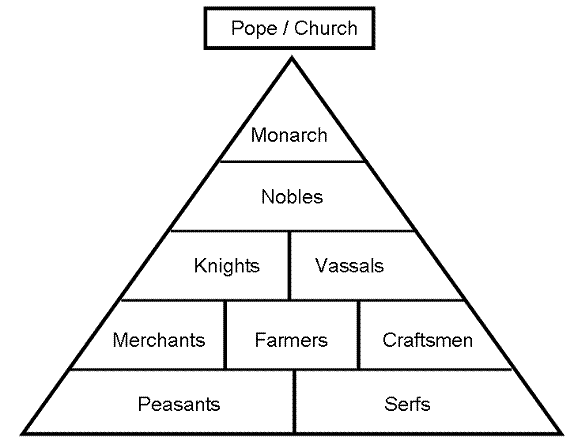Textuality » 4A Interacting
THE ANGLO-SAXONS AND THE MIDDLE AGES
After the Roman withdrawal during the 5th century from Britain, this place was subjected to the Anglo-Saxon invasions.
The Anglo-Saxons were people of Germanic origins, they came from Northern Europe and they spoke a Germanic dialect called Old English. It was especially spoken by the common people and it contributed to the creation of the English that nowadays it is still spoken in London, together with the Latin (spoken by the Church and the lawyers) and the French (spoken by the court).
in London, together with the Latin (spoken by the Church and the lawyers) and the French (spoken by the court).
The Anglo-Saxons entered the Britain in different moments, in fact they were formed by several tribes, for example the Angles ( from which the name "England" originated) , the Jutes and the Saxons. This tribes had been mixed and organized into seven kingdoms.
They reigned the Britain until the 1066, a crucial date because it marked the invasions of Norman (the last conquest of Great Britain by a foreign empire) and the beginning of the Middle Ages.
When we talk about the Middle Ages, we refer about a period of history that goes roughly from 1066 and 1485. It is very important for the English history because during this period of time there were lots of changes introduced mainly by the Normans, especially what concerns the society.
They were a tribe of Viking origins. They are called Normans because they came from the North, exactly from the Northern France. They entered the Britain in 1066, when they won the Anglo-Saxons during the battle of Hastings. The Norman king was William I the Conqueror (called the Conqueror just because he conquered these lands).
He is also important because he introduced the feudal system, a new organization, into Great Britain, according to which the king or the emperor distributed his lands between his knights and his barons. This organization was new for the Continent (the Europe). The feudal system was a hierarchical pyramidal system. On the top of it there was the Pope, after that there was the king, than the nobles and finally the serfs.
The Pope was so important because the most important code to all social classes during the Middle Ages was the Church and everybody, whatever social class they belonged to, they were interested in salvation. The religion was so important, that it originated, together with the chivalry code (a worldly and secular code, on the contrary of the religious one that it was regular), a medieval literature.
Medieval literature is divided in oral and written literature, the first was created by the common people and we find example of it in the ballads, instead the second was written by the aristocracy and we find it in the form of epic poetry.
When William I the Conqueror introduced the feudal system, he was afraid of the possibility that the knights and the barons could become stronger than him, so the lands that he gave them weren't very large. But over the years they became stronger and the power of the king was limited, especially in 1215 when the Magna Charta, the result of negotiation of power between the king (John Lackland) and the barons, was stipulated and later, in 1381 with the Peasants Revolution (made by the poor because of heavy taxes).
The Middle Ages came to an end in 1485 when Henry Tudor (the fist monarch of the great Tudor dynasty) became the king of the England by winning the Wars of the Roses (started in 1453 between the House of York, symbolized by a white rose and the Lancaster, symbolized by a red rose).